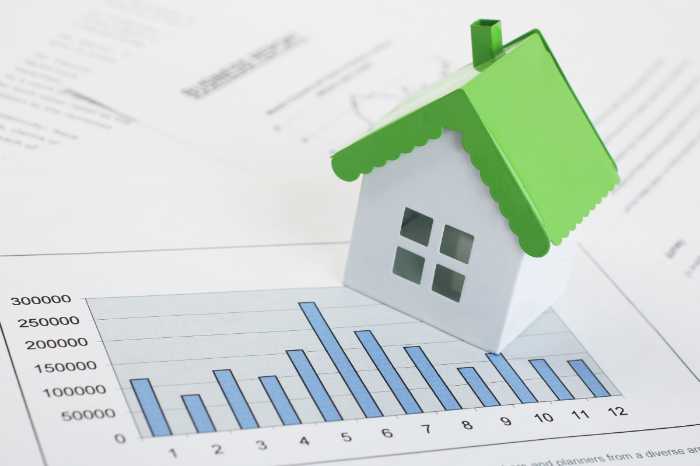A comprehensive guide to becoming a successful realtor in Ontario.
The real estate industry can be a very lucrative and rewarding industry to be in. If you’re thinking of becoming a realtor in Ontario, we’ve put together a comprehensive guide on how to become a realtor, frequently asked questions about the process, and definitions of commonly used terms.
What is real estate?

The exact definition of the term real estate is “property consisting of land and the buildings on it, along with its natural resources such as crops, minerals, or water; immovable property of this nature; an interest vested in this (also) an item of real property, (more generally) buildings or housing in general.
Also: the business of real estate; the profession of buying, selling, or renting land, buildings, or housing.
What is a realtor?

A realtor is a professional who is licensed to help people buy, sell, or rent a property.
In order to become a licensed realtor in the province of Ontario, you must:
- Be at least 18 years of age
- Have a high school diploma or equivalent
- Complete the Ontario Real Estate Association (OREA) Real Estate as a Business Course
- Register with the Real Estate Council of Ontario (RECO)
- Pass the provincial real estate exam
- Join a board
- Find a broker
- Complete the mandatory courses
- Get experience
- Obtain your license
A typical day for a realtor

Realtors have an assortment of duties and responsibilities. I typical day for a realtor may include:
- Meeting with clients
- Showing properties
- Attending open houses
- Preparing and giving presentations
- Negotiating sales contracts
- Marketing properties
- Maintaining contact with past clients
Is it hard to become a realtor in Ontario?
Becoming a realtor in Ontario is not overly difficult. The first step is to take the OREA Real Estate as a Business Course, a three-day course covering topics such as real estate law, ethics, and business practices.
After completing the course, you will then need to register with RECO and pass the provincial real estate exam.
Once you have passed the exam, you will need to find a broker to work with and complete the mandatory real estate courses.
Once you have done all of this, you will be eligible to obtain your license and begin working as a realtor.
While becoming a realtor in Ontario is not overly difficult, it is important to note that the profession requires a lot of dedication and hard work. If you are not willing to put in the time and effort, then becoming a realtor may not be the right career choice for you.
What is the provincial licensing exam?

The provincial licensing exam is a multiple-choice exam that tests your knowledge of real estate law and practice in Ontario. The exam is administered by the RECO.
You will need to score at least 75% on the exam in order to pass. The exam fee is $60 for members of CREA and $85 for non-members.
How much does it cost to become a realtor in Ontario?
The cost of becoming a realtor in Ontario varies depending on a number of factors, such as the courses you take and the broker you work with. However, you can expect to pay between $1,500 and $3,000 to cover the costs of the necessary courses and exams.
How long does it take to become a realtor in Ontario?
The length of time it takes to become a realtor in Ontario varies depending on the individual. However, it typically takes between four and six months to complete the necessary courses and exams.
What are the benefits of becoming a realtor?

There are many benefits to becoming a realtor in Ontario, such as the ability to help people sell their home or buy their dream home, the opportunity to work independently, and the potential to earn a good income.
In addition, being a realtor can provide you with a great sense of satisfaction and achievement.
What are the drawbacks of becoming a realtor in Ontario?
The drawbacks of becoming a realtor in Ontario include the long hours, the need to work on weekends, and the high-stress levels.
In addition, you may also find it difficult to get started in the profession if you do not have any previous experience.
What are some common real estate laws in Canada?

Here are some common laws in Canada:
- REBBA sets out the rules for transactions and regulates the activities of brokers and salespersons in Ontario.
- The Mortgage Act governs the rules around mortgages and other loans secured by property in Ontario.
- The Planning Act is the main legislation governing land-use planning in Ontario.
- The Condominium Act 1998 governs the rules around condominiums in Ontario.
- The Human Rights Code sets out the rules around discrimination in housing and other areas in Ontario.
Things to consider before becoming a realtor
The market can be unpredictable and subject to fluctuations. This means there may be periods when it is difficult to sell or rent properties.
As a realtor, you will be working with people from all walks of life and with varying levels of experience. It is important to be able to deal with people in a professional and respectful manner.
Realtors are required to disclose certain information about properties to potential buyers and renters. If this information is not disclosed, it could lead to legal action being taken against the agent.
What are the four types of real estate agents?
The four types of agents are:
- Sales Representatives
- Brokers
- Associate Brokers
- Managing Brokers
Sales representatives
The most common type of real estate agent is a sales representative. They work with buyers and sellers to help them find properties that meet their needs.
Brokers
Brokers are licensed to trade in real estate and can work with both the home buying process and selling. They typically have more experience than sales representatives and can offer advice on the best way to buy or sell a property.
Associate brokers
Associate brokers are licensed to trade in real estate but can only work with clients who have been referred to them by another broker. They typically have less experience than brokers and may not be able to offer as much advice.
Managing brokers
Managing brokers are licensed to trade in real estate and can work with both buyers and sellers. They typically have more experience than sales representatives, associate brokers, and brokers. They may also be responsible for managing a team of agents.
Is there a difference between a realtor and a real estate agent in Ontario?

The term “realtor” is a registered trademark of the Canadian Real Estate Association (CREA). Only members of CREA are permitted to use this term.
A real estate agent in Ontario is someone who is licensed by the province to help people buy, sell or rent properties.
Agents are required to adhere to a code of ethics and standard of business practice set out by the RECO. While all real estate agents are licensed by the province, not all are CREA members. However, to be a member of CREA, you must also be a licensed real estate agent.
So, in short, all realtors in Ontario are real estate agents, but not all real estate agents are realtors.
What is the difference between a broker and a real estate agent?

A real estate agent is someone who is licensed to help people buy, sell or rent properties. A real estate broker is someone who has an additional license that allows them to own or operate a real estate brokerage.
In order to become a broker in Ontario, you must first complete the education requirements and pass the provincial licensing exam. You will then need to register your brokerage with the RECO.
There are several benefits to becoming a broker. For example, brokers can set their own commission rates, hire and manage agents, and have access to additional resources and support.
However, there are also some risks to consider before becoming a broker. For example, brokers are responsible for the actions of their agents. This means that if an agent breaks the law or acts unethically, the broker could be held liable.
If you are thinking about becoming a broker, it is important to do your research and consult with an experienced professional.
Business
Business brokers help to buy and sell businesses and are different than real estate brokers. The Business Brokers Act (the Act) is a provincial law that regulates that industry in Ontario. The Act sets out the rules and regulations that these brokers must follow. The Act is administered by the Ministry of Government and Consumer Services.
Skills that the best real estate agents possess:

- The ability to build relationships easily
- A strong work ethic
- Excellent communication skills
- The ability to negotiate effectively
- A positive attitude
- The ability to stay calm under pressure
- Excellent customer service skills
- Strong organizational skills
- The ability to think on your feet
- A high level of integrity
- The ability to stay up-to-date on industry changes and trends
These are just some of the skills that the best real estate agents possess. If you want to become one of the top real estate agents in your area, it is important to make sure that you have the right skills for the job.
The industry is constantly changing. This means that agents need to be able to adapt quickly and think on their feet. They also need to be excellent communicators and have strong customer service skills.
Real estate may not be a good industry for you if you:
- Don’t like change or are resistant to change
- Have poor communication skills
- Lack customer service skills
- Are not organized
- Are not a people person
- Prefer to work alone
How much do real estate professionals make in Ontario?

The amount of money that real estate professionals make in Ontario depends on a number of factors, such as their experience, the type of properties they sell, and the commission rates they charge.
The average agent in Ontario makes about $50,000 per year. However, top-performing agents can make much more than this.
Real estate professionals in the commercial sector tend to make more money than those in the residential sector. This is because commercial properties are usually more expensive, and the commissions are higher.
The amount of money that realtors make also depends on their commission rates. The standard commission rate in Ontario is 5%. However, some agents charge a lower rate, while others charge a higher rate.
Can you make more money as a realtor than just as an agent?
Yes, you can make more money as a realtor than just as a real estate agent. Realtors tend to have more experience and knowledge than even top real estate agents, so they can charge higher commission rates.
Is this industry competitive?

The industry is competitive. However, you can do a few things to increase your chances of success.
First, it is important to get your education from an accredited school. This will give you the skills and knowledge you need to be successful in the industry.
Second, it is important to get your license. This will show potential clients that you are serious about your career and that you have the necessary skills to help them buy or sell a property.
Third, it is important to stay up-to-date on industry changes and trends. This will allow you to better serve your clients and give them the information they need to make informed decisions.
Should you avoid becoming a realtor in Ontario if the real estate market is bad?

No, you should not avoid becoming a realtor if the real estate market is bad. In fact, this is the best time to become a realtor.
Realtors have the ability to help their clients buy or sell properties even in a down market. This is because they have the knowledge and experience to negotiate the best deals.
Which province currently has the best market to work in?
The province with the best market to work in is Ontario. This is because the real estate market is strong, and many properties are for sale.
In addition, Ontario has a number of programs and initiatives that are designed to help realtors succeed. Some initiatives include the Homeownership Program and the First-Time Home Buyers Tax Credit.
Do I need to have a broker’s license to have my own real estate business?
No, you do not need a broker’s license to own your real estate business. However, having a broker’s license will allow you to work with more clients and charge higher commission rates.
Tips for new realtors in Ontario
So you have your license and found a broker; now what? Here are a few tips to help you get started in your new career:
- Get involved with your local board. This is a great way to network and learn about the industry.
- Join a team. This will allow you to work with experienced agents and learn from them.
- Use social media to your advantage. Create a profile on LinkedIn and join relevant groups. This is a great way to connect with potential clients.
- Stay up-to-date on industry news. This will help you better serve your clients and keep them informed about changes in the market so they can find their dream home.
- Attend continuing education courses. This will help you stay up-to-date on industry changes and trends.
The best way to succeed as a realtor is to be knowledgeable and well-connected and provide great service. By following these tips, you will be on your way to a successful career in the Ontario market.
How to find new clients as a new realtor in Ontario:
- Ask friends and family if anyone is looking for a realtor in Ontario
- Give presentations. This is a great way to show your expertise and attract potential clients.
- Get involved with community events. This is a great way to meet new people and find potential clients.
Are there any other licenses or certifications I need?
There are no other licenses or certifications you need to be a realtor. However, staying up-to-date on industry changes and trends is always a good idea.
This article has provided you with some information on the skills you need to be a successful realtor.
If you have the right skills and knowledge, you can be successful in this exciting and rewarding industry. Becoming an experienced real estate agent will take time, but you’ll do great with patience, great service, and dedication!
Here are some common terms for real-life scenarios:
MLS – Multiple Listing Service. A database of properties available for sale, used by agents and brokers in Ontario.
Offer to Purchase – A contract used to purchase a property in Ontario.
Purchase Agreement – A contract used to purchase a property in Ontario.
Deposit – A sum of money paid by the buyer to the seller to show their seriousness about purchasing a property.
Closing – The final step in a transaction, where the title of the property is transferred from the seller to the buyer and all remaining payments are made.
Agent – A professional who represents buyers or sellers in a transaction.
Broker – A professional representing buyers or sellers in a transaction and is licensed to manage a team of agents.
Seller – The owner of a property who is looking to sell it.
Buyer – A person who is looking to purchase a property.
Property – Real estate consisting of land and any buildings or structures on it.
Zoning – The regulations around land use that dictate what can be built on a piece of property.
Title – The document that proves ownership of a piece of property.
Deed – The document that transfers ownership of a piece of property from one person to another.
Mortgage – A loan that is secured by a property.
Assessment – The value of a property used for taxation purposes.
Taxes – Money owed to the government, based on a property’s assessed value.
Insurance – A policy that protects against loss or damage to property.
Appraisal – A professional opinion of the value of a property.
Listing – A contract between a seller and an agent that allows the agent to market and sell the property.
Commission – The fee an agent or broker earns for their services in a real estate transaction.
Multiplex – A property with two or more units that can be rented out, such as an apartment building.
Condo – A type of ownership where each unit owner owns their own unit and shares common areas with the other unit owners, such as a lobby or gym.
Townhouse – A type of ownership where each unit owner owns their own unit and shares common walls with the adjacent units but does not have any common areas.
Semi-Detached – A type of ownership where two units are attached to each other by a common wall, but each unit is owned separately.
Detached – A type of ownership where a unit is not attached to any other units and stands alone.
Freehold – A type of ownership where the owner owns both the property and the land it is on.
Leasehold – A type of ownership where the owner leases the land from a landlord and owns the property on the land.
Tenancy – The relationship between a landlord and tenant.
Landlord – The owner of a property who rents it out to tenants.
Tenant – A person who rents a property from a landlord.
Rent – The amount of money paid by a tenant to a landlord for the use of their property.
Lease – A contract between a landlord and tenant that outlines the terms of the tenancy.
Security Deposit – A sum of money paid by the tenant to the landlord at the beginning of the tenancy to protect against damage or unpaid rent.
Property Management – The process of overseeing a property, including finding and screening tenants, collecting rent, and dealing with repairs.
Eviction – The legal process of removing a tenant from a property.





